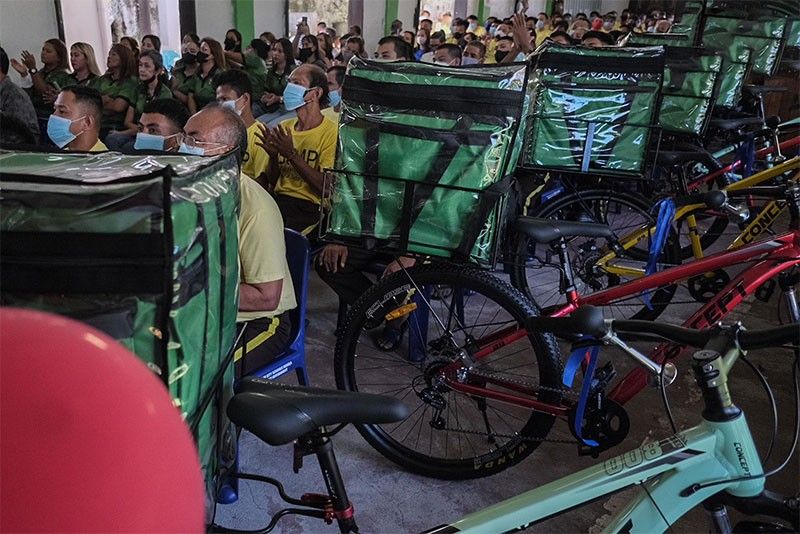Food cart program gives hope to reformed drug suspects

MANILA, Philippines — After spending six months in jail for drug offense, and another six months for counseling and rehabilitation, 46-year-old Jessie Morales was left homeless by a fire that hit his neighborhood in Tondo last month, leaving him with nothing but more anguish.
But just when he thought everything was lost, a lifeline emerged – a food cart, courtesy of Judge Maria Sophia Tirol Solidum-Taylor of the Manila City Regional Trial Court Branch 31, and the Manila City Jail, under an “after-care” program called “Kariton ng Bagong Buhay at Pag-asa.”
The food cart will allow Morales to have a source of income and provide for two of his five children still living with him.
“I don’t want to go back to drugs. I want to change my life. There’s nothing for me in doing drugs. First of all, I realized that I was just ruining my life, my family and my job,” he told The STAR in Filipino.
Under the Kariton ng Bagong Buhay at Pag-asa program, indigent drug suspects who entered into a plea deal are given a food cart for their livelihood after their release from jail.
However, to be eligible for a food cart, drug suspects should consistently turn out negative in drug tests, which are conducted as they report under the rehabilitation program.
The negative drug test results, Judge Taylor said, are proof that the former drug suspects are turning away from drugs and are willing to change for the better.
The food carts are built by detainees in the Manila jail and the materials used – wood and galvanized sheet for the roof – are donated.
Former detainees are also given initial capital of food products such as siomai, siopao, fishballs.
“The program is good for people like us who have nowhere to go. We are given something to do, some livelihood,” he said.
“This is a challenge for me because I really want to change. I don’t want to go back to my old lifestyle because being jailed is hard,” he said.
According to Manila City Jail Warden Supt. Lino Soriano, 11 food carts have been built so far including the one given to Morales.
Two other food carts were previously given to two other former PDLs or persons deprived of liberty – one of which is stationed on Villalobos Street near Quiapo Church and the other positioned near Ogbo Street in Tondo. Morales’ food cart is eyed to be placed on Aroma Street in Tondo. Soriano said they are eyeing to build a total of 20 food carts.
Former drug suspects like Morales can keep the food cart as long as they continue to test negative and stick to their assigned places.
For her part, Judge Taylor said programs aimed at helping former drug suspects pick up their lives after imprisonment should be expanded. She asked the national government to institutionalize the after-care livelihood project for drug offenders “to give them a second chance in life.”
“These people are just like us. They’re all flawed but if you give them a chance and hope, they will change. They already admitted that they are drug addicts and through their admission, they effectively admitted that they need help from the government, from us in the community,” she said.
She, however, lamented that the current resources for the program are not yet enough to help all indigent drug offenders who need a livelihood after serving time.
She said she alone is supervising 59 drug offenders needing help after serving time.
“At least if we give one PDL help, all other PDLs will have hope. Hope is very important for them because if there is no hope, there is no chance and then we will come into despair and then depression and go back to addiction. We have to keep the hope burning,” she explained.
Aside from the food cart program, the Manila City Jail also has another livelihood project: selling pastries.
The program provides bicycles to freed PDLs which they can use for selling pastries they themselves prepared inside the Manila jail. The freed PDL will earn a portion of the sale of the pastries.
Those who avail themselves of the program must pick up the products from the jail and sell them. Afterwards, they are required to return the bike. Soriano said they are also monitoring the use of the bikes to make sure they are not being used for crimes or wrongdoings. Soriano said PDLs can earn up to P500 a day from selling pastries.
For now there are five bikes at the Manila City jail, but Soriano said they plan to augment the number to cater to more freed PDLs.
- Latest
- Trending





























